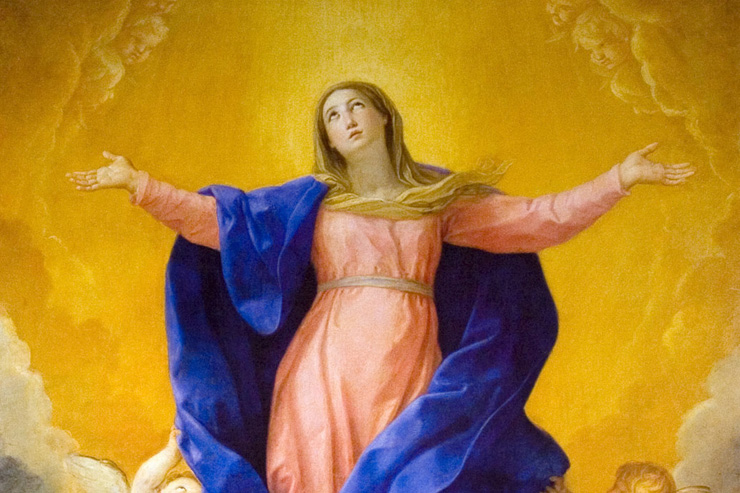At first glance it may seem that in today’s Gospel Jesus is asking his disciples to burn his bridges, but if we look a little more closely we can see he’s inviting us to “do the math.” It seems so illogical that he would ask us to abandon our family, our health, our security, and our comfort to follow him – he tells us to follow him bearing our Cross. In the second part of the Gospel he invites us to do the math: to think about what we’re trying to build in our life, like the tower builder, and what battle we’re ready to wage against the challenges that come in life, like the king
When we read the words of the First Reading, we see the math just breaks down. When we try to find the answers to the big questions – life, death, love, our calling in this life, we see that the cut and dry business or scientific approach doesn’t work. The big questions escape our categories, experience, and observation, and with such big mysteries looming over our heads, mysteries that seem to decide our fate, our hearts yearn for freedom. Christ in today’s Gospel is offering us those answers and that freedom. He asks us to have faith and trust in Him
Onesimus, the slave whom Paul mentions in the Second Reading, sought that escape to freedom from his master, Philemon, to whom Paul was writing, but he found a far greater freedom. In the time of ancient Rome, slaves were a big percentage of the population: due to debts or being on the wrong end of a war, and such a need to Roman society that they were a social class of their own. Rome took escapees very seriously, and Onesimus got caught, but Christ let him get caught so he could experience a true freedom, with the help of St. Paul, whom he met in prison. Paul sent Onesimus back to Philemon with the letter we read a part of the second reading to be Christ’s instrument of liberation: a liberation of love. Paul urges Philemon to see Onesimus now as more than a servant, more than a piece of property, to see him as Christ wants him to be seen: as a brother. We can hope that Philemon accepted Onesimus back as a brother.
When we follow Christ, he will do the same thing through us. Our families, our sufferings, our very selves will experience this liberation of love, and when we follow Christ, those we love will seek him as well as the answer to the big questions of life that go byond their math as well. However, we must put Christ first in our lives. That can hurt us and our family a lot, but when we put our calculations aside, when we face the unknown trusting in Christ, we show him we are following him.
Let’s ask Our Lord for the grace to put him first: to put him first by receiving him frequently in the Eucharist, by telling him we’re sorry in Confession, by helping the spiritually or materially poor around us, and by loving our family as Christ taught us and showed us.
Readings: Wisdom 9:13–18b; Psalm 90:3–6, 12–14, 17; Philemon 9–10, 12–17; Luke 14:25–33. See also 31st Week in Ordinary Time, Wednesday and 15th Week in Ordinary Time, Monday.




